Originally published Feb. 7, 2020 in the Times Herald-Record.
By Jessica Cohen
A new way for Port Jervis School District students to excel has been “embedded” into the curriculum, kindergarten through high school, says Nick Pantaleone, assistant superintendent for instruction.
Two years ago, when he took the position, a mental health curriculum was added to state requirements, he said. He asked Amy Malloy, director of school mental health resources for the Mental Health Association of New York, to speak at a staff conference about the new expectations. A school mental health committee was formed, and one result was a K-12 character education “map.” Last year it was implemented.
 “A student may not be a scholar or athlete, but now demonstrations of honesty, mindfulness, compassion and other aspects of character will be rewarded,” Pantaleone said.
“A student may not be a scholar or athlete, but now demonstrations of honesty, mindfulness, compassion and other aspects of character will be rewarded,” Pantaleone said.
Every month a different character theme is spotlighted, and students “caught” demonstrating it are rewarded according to the system devised at their school. At the end of the month, those students attend a celebratory event.
The value of encouraging constructive ways of interacting by integrating a “social-emotional learning program” became increasingly apparent to Pantaleone, when social workers introduced Cornell Cooperative’s Resilience Project, he said. Their documentary, “Resilience,” showed the burdensome effects of “adverse childhood experiences,” such as domestic violence, an incarcerated or addicted parent, divorce and poverty.
“Those experiences are invisible backpacks that can result in children being developmentally behind,” said Pantaleone. They often have long-term effects on health, research shows.
A visit from Scarlet Lewis, whose 6-year-old son Jesse was one of 20 children who died in the Sandyhook Elementary School killings, fueled interest in character education. Her “Choose Love” program emphasizes teaching children how to address social situations with “courage, gratitude and compassion,” Pantaleone said.
“Scarlet talked about forgiveness for Adam Lanza,” who had killed the children and six adults, Pantaleone said.
Character education is just one component of the mental health curriculum that runs through each grade level and class. Pantaleone sees it as addressing children’s basic needs for safety and acceptance in the school social sphere.
“Addressing how children are treated comes before how we teach them,” Pantaleone said.
The mental health curriculum also runs through academic classes.
For instance, Pantaleone asked, “How did Abraham Lincoln’s depressions affect his presidency?”
The new curriculum includes consideration of such factors in history and literature. School libraries have added books about different cultures, LGBT life, mixed households and poverty, he said.
He also sees the new ways exercise has been integrated into the school day as aspects of the mental health curriculum. Children who attend Zero Hour PE, an exercise program offered before school at the two elementary schools, said they made friends there, were more energetic in class, and improved academically.
Other parts of the effort to integrate more physical activity into school days include the kinesthetic learning lab, where students move while they learn; kinesthetic hallways, where students exercise on their way to class; “brain breaks” in class, and “Fit Fridays.”
Research has shown that exercise enhances learning, and for some students, physical engagement is particularly valuable.
Pantaleone noted Howard Gardner’s theory of multiple intelligences, which asserts that people have different kinds of intelligence. The ones Gardner identified include linguistic, visual/artistic, mathematical, musical, interpersonal, introspective, bodily kinesthetic and attunement to nature. Opportunities for physical activity integrated with academics give kinesthetically inclined students opportunities to excel.
Providing different enrichment activities also gives students opportunities to be part of a group, a sense of belonging, which enhances their engagement in school, Pantaleone said.
“Port Jervis has the first trauma-informed social emotion school curriculum,” aimed at building student resilience, said Julika Von Stackelberg, parenting and family life educator and Resilience Project coordinator at Cornell Cooperative Extension.
Seeking information about IHT’s emotional self-regulation program?
[contact-form-7 id=”3054″ title=”How’d you find us?”]


